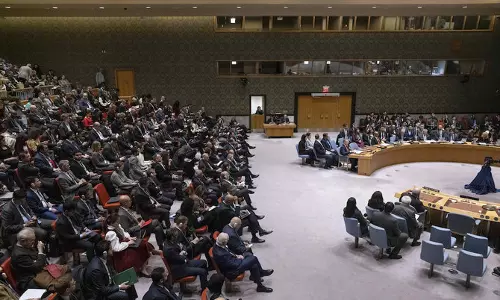
Thoughts about Kerala's land utilization
text_fieldsChief Minister Pinarayi Vijayan informed after the cabinet meeting on Wednesday the government's decision to appint a committee to make an in-depth study about the land utilization in the state.
The panel headed by Water Resources Department director is expected to submit its report withn three months. The committee will eamine the areas suitable for living and house construction. It will also look into the possibilities of alternative construction methods other than the current ones using more material from nature and explore the possibilities of employing pre-fabricated products. The government aims to ensure environment protection by minimising the use of laterite and sand and lays stress on construction methods that mitigate the impact of disasters like flood and land slide. That in a nutshell is what the chief minister revealed.
A fundmental change in the land utilization model of Kerala has been raised by experts for long. But it did not reach a level of serious deliberation. It is in the context of a second major flood in Kerala that the cabineet made such a new decision. It is indeed a laudable move. At he same time, it should not end with a minimum goal of a set of new rules for building construction. It should lead to a virtual paradigm shift with radical structural changes impinging on our habiat and use of land.
Every natural disaster like flood, land slide and sea erosion in our land is usually followed by certain debates about environment. But they all end up wih, and are limited to some discussions about quarry, soil excavation and sand mining. Given that Kerala is a region where the construction industry is greatly active and there is a high density of industries allied with construction, there is no big point in floating environmental theories against quarry and sand mining. It may also seem paradoxical to make such lectures sitting inside buildings made of rubble and metal all brought from quarries. For this very reason, it may not achieve much at the practical level by cliché-ridden ecological contentions. And the socio-economic conditions, with most families having turned to nuclear units, are such that they can hardly be stopped from building houses to their liking in their land with their own hard-earned money. Therefore, unless core changes are made in our housing models, we will not be able to get out of this vicious cycle.
Perhaps Kerala's pattern of habitat may be something seen nowhere else in the world. From one to the other, it represents a densely populated stretch. We do not have distinct segretated territories like farm land, residential land and industrial land. What prevails at present is building a house wherever a few cents of land is available. The main reason for evoluton of such a habitat is the ubiquitous availability of water. The question is whether a paradigm shift can be achieved in this. That is to say, it will be necessary to classify land based on its structure, need and characteristics, and formulate rules and regulations according to the needs of each zone. Exising rules are scattered across a spectrum of rules including laws to protect wetland and paddy field, laws to protect environmentally sensitive areas and forest laws. It will also mean that instead of building house and constructing buildings according each one's whims, a system of zoning into those for industry and agriculture as per needs, will have to be put in place. When such structural reforms are implemented, big changes can be expected in aspects like travel, road, fuel costs and carbon emission. But it is equally important to keep it in mind that these are all easier said than done, with age-old habits that die hard. They cannot be transformed overnight with a committee report. Only through extensive consultations at all levels of the society and debates that lead to sound conclusions can that be achieved. But this is the time to kick start such an arduous task. Let the new committee appointed by the committee make a beginning for such a grand mission.























